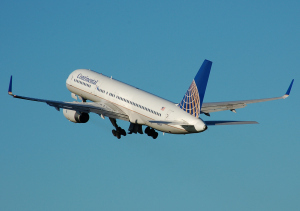The Uncontrolled Descent of Continental’s Legacy
 Jeff Smisek resigned suddenly as chief executive of United Airlines in early September. His legacy is forever linked to the merger of United and Houston-based Continental Airlines, where Smisek had worked since 1995. While the merger has been problematic, even by airline merger standards, Smisek’s departure also closes the door on the legacy of Continental itself. The carrier played a key role in redefining how airlines operate in the deregulated world, and it led the way on many innovations that today’s travelers take for granted. In the latest Texas Monthly, I take a look back at how Continental helped change the way we fly and what Continental’s loss mean to Houston.
Jeff Smisek resigned suddenly as chief executive of United Airlines in early September. His legacy is forever linked to the merger of United and Houston-based Continental Airlines, where Smisek had worked since 1995. While the merger has been problematic, even by airline merger standards, Smisek’s departure also closes the door on the legacy of Continental itself. The carrier played a key role in redefining how airlines operate in the deregulated world, and it led the way on many innovations that today’s travelers take for granted. In the latest Texas Monthly, I take a look back at how Continental helped change the way we fly and what Continental’s loss mean to Houston.
As news of United Airlines CEO Jeff Smisek’s departure reached Houston in early September, you could almost feel the collective response: good riddance. Even before Smisek was caught up in the corruption investigation that led to his resignation, many Houstonians resented him for merging their hometown airline, Continental, with the Chicago-based United five years ago. The move cost Houstonians more than first-rate air service—it stole a bit of civic pride. Just months after NASA ended the space shuttle program, Houston lost its only airline; Space City was grounded. “Continental had Houston DNA,” says Jeff Moseley, the former head of the Greater Houston Partnership. “To see it fold up and move out of town was painful.”
What hurt the most, perhaps, was that Continental was a paradigm of the sort of corporate innovation that Houston has long prided itself on. “Continental’s whole history was being a maverick airline,” says Phil Bakes, the company’s president in the mid-eighties. And much of that history was tossed out the window after it was swallowed up by United.





